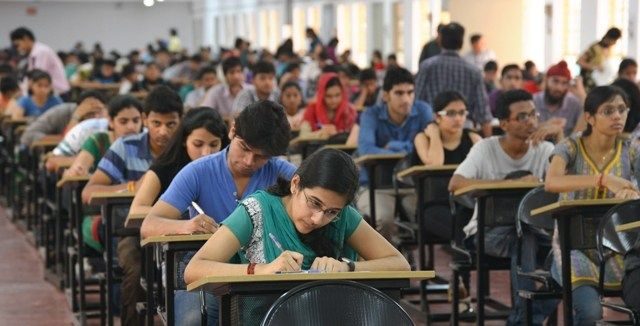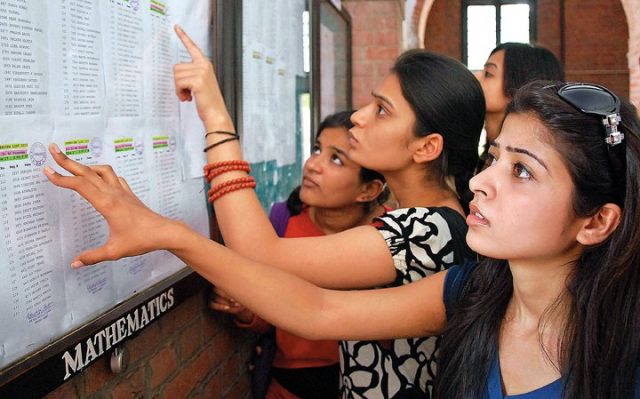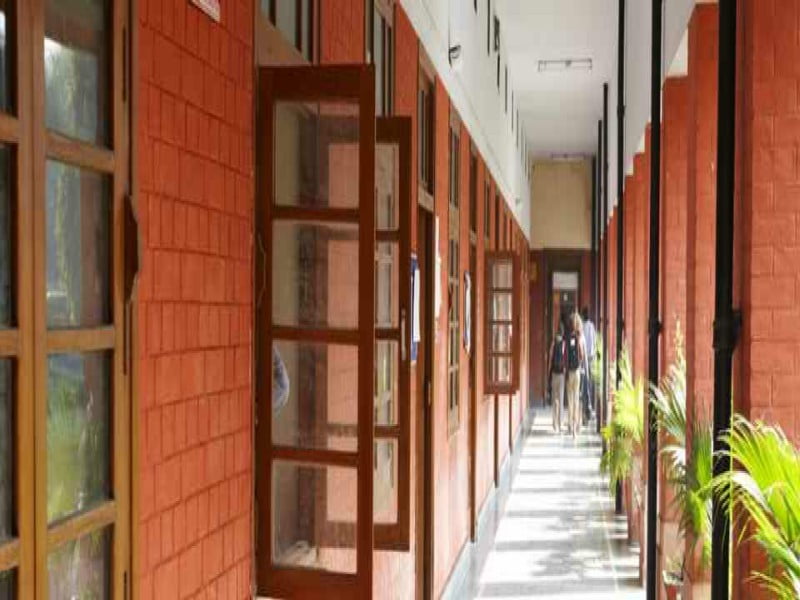It’s already that time of the year, where lakhs of DU aspirants from around the country are left pondering whether their fate lies in DU or someplace else. As per the report published in TOI, the registration process for undergraduate admissions to Delhi University for the academic session 2018-19 are all set to kick-start next week.
What’s new this year?
This year, the Delhi University has formulated a number of changes to make the admission process much simpler. While there was a separate registration process for the merit and entrance based exams until last year, this year the admission registration portal for the nine entrance-based professional courses will be integrated with the centralized admission portal.

The application forms this year will start earlier than usual, whereas the registration process would also be done once for all the courses. The single window registration process comes as a welcome move by the university officials, who said:
“Single-point registration will ensure that all the data are centrally located and the admission committee has access to them at one place”
Although still unconfirmed, the Delhi University in its statement in December 2017, informed the applicants who want to take admission to the B.Com and B. Com (Hons), that the admission to the course will only be made through B.Com Entrance Tests 2018.
The statement said “Hereby informed to all aspirants who desire to take admission to University of Delhi B.Com/B.Com (Hons) for the session 2018-19 that the Admissions entry for the Candidates in said courses will only be made through B.Com Entrance Tests 2018,”
It remains to be seen whether an All India Level basis Entrance Test does take place this year.
Also read: DU Teachers Strike Against Hike In College Fees And Privatisation Move By Government

Can we expect a dip in cut offs this year?
Opening the newspaper and seeing university cut-offs touching a ridiculously high 100% in recent years has been a sight of discomfort for all admission seekers.
Here we bring to you the four main reasons why Delhi University has insane cut-offs:
1. The Flynn Effect
Sounds weird? Never heard of it?
James Flynn, a political studies professor once said that the IQ of children is going up by the generation. Although very questionable it includes factors like more schooling, familiarity with tests, more stimulating environment, better nutrition, reduction in infectious diseases.
This is the least plausible explanation of the insane cut-offs out of the four.
2. 95% is the new 75%
Grade inflation or moderation of marks as we know it in India has been a practice that is going on for a long period of time. Although this practice was initially used to award grace marks to students who were failing in their respective papers, in the recent years, it is being used to inflate marks of even those who are scoring well. For me, this is the main reason in our country that we are seeing cut-offs going out of everyone’s reach.
3. Demand vs Supply effect
All the 12th graders and above are well familiarized with this equation and somewhere or the other might have thought about how the demand and supply affect their college fate. This is also one of the most important variables in my opinion.
So taking an example of SRCC, the college had 624 seats in 2013; this number was almost the same in 1987. So in short, the supply side has stayed the same for 26 years. But the demand side has exploded with 15 lakh kids taking the class 12th examination in 1987 as compared to 1.60 crores in 2013. Now we can’t blame the college, can we?
4. Bridging the gap between the poor and the rich
Lastly, the class 12th examination are a reasonable predictor of a student’s academic potential. But they are imperfect as they are influenced by differences in education, the challenges of being a first generation learner, first language home environment, ability to afford tuitions, exam conditions among others.
Is anything being done about it?
Twenty-three states and Union Territories have so far offered assurance to the ministry that they will not be indulging in the practice of moderation of marks.
“The state board of examination has been following the practice of awarding grace marks only to pass the borderline cases. It has been decided to disclose the quantum and policy for moderation on the website as and when the decision is taken,” read the letter written by Pradeep Yadav, principal secretary to the government, state education department, Tamil Nadu.
The recent trend suggests that this year too we can expect more number of students giving board exams than last year, which does not bring any change to our demand and supply effect but only makes it worse.
With the moderation policy now done away with, we can expect a drop in the results as compared to recent years. Now students getting fewer marks than before will automatically lead to a dip in cut-offs which will offer a relief to the DU aspirants.
All the Best!
Image Credits: Google Images
Sources: The Economic Times, Times Now, Financial Expresss
You’d also like to read:
http://edtimes.in/2017/12/why-south-campus-is-not-as-great-as-north-campus-in-delhi-university/
































